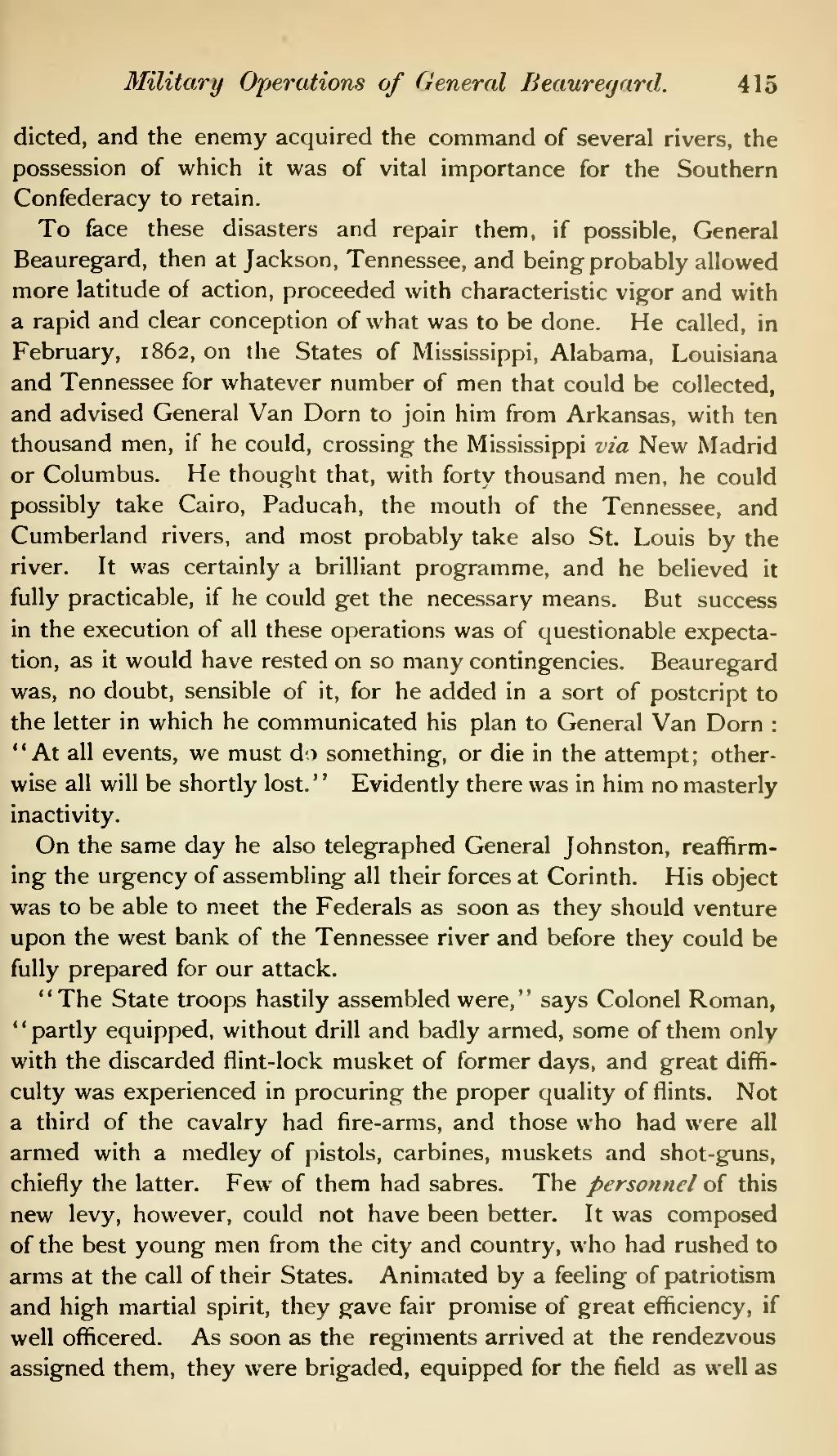Military Operations of General Beauregard. 415
dieted, and the enemy acquired the command of several rivers, the possession of which it was of vital importance for the Southern Confederacy to retain.
To face these disasters and repair them, if possible. General Beauregard, then at Jackson, Tennessee, and being probably allowed more latitude of action, proceeded with characteristic vigor and with a rapid and clear conception of what was to be done. He called, in February, 1862, on the States of Mississippi, Alabama, Louisiana and Tennessee for whatever number of men that could be collected, and advised General Van Dorn to join him from Arkansas, with ten thousand men, if he could, crossing the Mississippi via New Madrid or Columbus. He thought that, with forty thousand men, he could possibly take Cairo, Paducah, the mouth of the Tennessee, and Cumberland rivers, and most probably take also St. Louis by the river. It was certainly a brilliant programme, and he believed it fully practicable, if he could get the necessary means. But success in the execution of all these operations was of questionable expecta- tion, as it would have rested on so many contingencies. Beauregard was, no doubt, sensible of it, for he added in a sort of postcript to the letter in which he communicated his plan to General Van Dorn : "At all events, we must do something, or die in the attempt; other- wise all will be shortly lost. ' ' Evidently there was in him no masterly inactivity.
On the same day he also telegraphed General Johnston, reaffirm- ing the urgency of assembling all their forces at Corinth. His object was to be able to meet the Federals as soon as they should venture upon the west bank of the Tennessee river and before they could be fully prepared for our attack.
"The State troops hastily assembled were," says Colonel Roman, "partly equipped, without drill and badly armed, some of them only with the discarded flint-lock musket of former days, and great diffi- culty was experienced in procuring the proper quality of flints. Not a third of the cavalry had fire-arms, and those who had were all armed with a medley of pistols, carbines, muskets and shot-guns, chiefly the latter. Few of them had sabres. The personnel of this new levy, however, could not have been better. It was composed of the best young men from the city and country, who had rushed to arms at the call of their States. Animated by a feeling of patriotism and high martial spirit, they gave fair promise of great efficiency, if well officered. As soon as the regiments arrived at the rendezvous assigned them, they were brigaded, equipped for the field as well as
